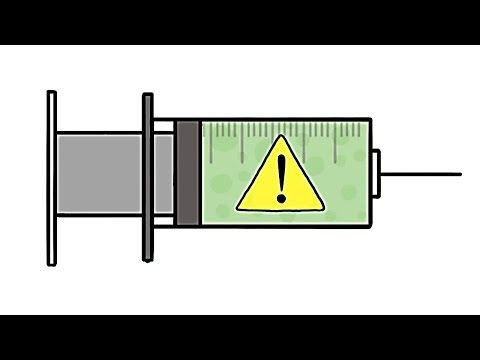Vaccine Ingredients Include Chemicals, Like Formaldehyde And Aluminum, But They Are Not Dangerous

Vaccines are a hot topic right now, and those opposed will call on many arguments to try and discredit the necessity of an injected immunity. For instance, they may say that vaccines contain many chemicals harmful to the human body which is true, but a new video by MinuteEarth sheds some light on why these chemicals are both necessary, and pose no threat.
It is true that our body does a pretty good job of defending disease on its own; we have a whole army of immune cells at our disposal when a pathogen invades, and for the most part, they can get rid of the threat. Whenever our body is presented with an outside element, it will recruit antibodies, along with cells designated to engulf, and destroy the attacker. These cells will then trigger a response within the immune system, creating other cells tailored specifically to destroying that disease. When our body has finally destroyed the pathogen, cells that have been created for the fight will remain in our system in case the same disease tries to invade again.
However, there are instances when that pathogen is too strong, and overwhelms our immune system. This is where vaccines come in; by presenting our bodies with the pathogen before it attacks, we can trigger the immune response which creates the cells and antibodies necessary to destroy it. But, doctors would never dream of giving you an actual, active strain of the disease; instead they will inject a dead, weakened, or dismembered version of the pathogen to disarm the enemy, and build our defenses.
According to the CDC, millions of vaccines are given to children each year, so it is of utmost importance to make sure these vaccines are sterile, potent, and safe. In order to do this, vaccines require a small amount of chemicals, like formaldehyde, which weakens the virus before it is administered. Formaldehyde is found in many vaccines like the flu, and tetanus shot, and can often be harmful in large doses. However, vaccines only contain a miniscule amount, equal to the amount we consume in our food, and the amount our bodies produce each day.
Sometimes, vaccines need other chemicals to help trigger the immune response because the pathogen may be too weakened to set off our immune system on its own. Scientists will then add chemicals known as adjuvants; aluminum is a common adjuvant that causes a reaction near the injection site which will summon immune cells to the area of the new invader. Aluminum is also toxic in large doses, but our body does such a good job of getting rid of it, especially in this small quantity, that the aluminum in vaccines is nothing to worry about. The CDC also says that chemicals put into vaccines help the vaccination to keep its potency, even over long periods of time.
So yes, vaccines do contain chemicals, but the amounts are almost insignificant. In fact, you face a greater risk when dealing with viruses without vaccinations than you possibly could from their chemicals.
Published by Medicaldaily.com



























